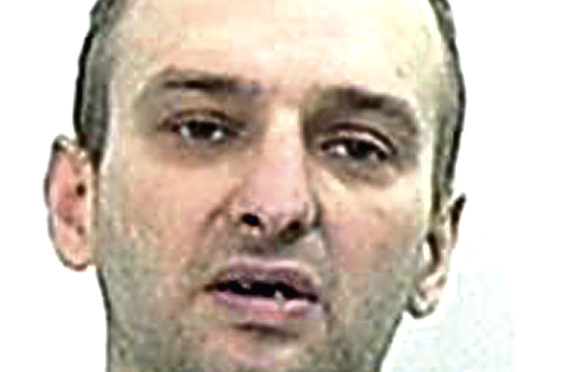
Almost 50 criminals from Poland will be sent home from Scotland after a thief lost a test-case battle to avoid extradition, we can reveal.
Patryk Maciejec, 27, will return to Poland to face justice despite claiming he will not receive a fair trial because of court reforms in his homeland.
However, a sheriff last week rejected his courtroom plea, paving the way for 48 Poles, held on European Arrest Warrants but arguing to stay, to be sent back.
Maciejec was given suspended prison sentences in Poland for housebreaking, theft and drink-driving, and was facing a charge of driving while already banned when he moved to Scotland in 2011.
Working in Edinburgh as a part-time car mechanic, he was arrested four years later under a European Arrest Warrant.
His lawyers fought extradition over reforms to Poland’s judicial system by a new right-wing government that have been criticised by the EU.
But, ruling on the case, Sheriff Frank Crowe said: “Mr Maciejec could put no reason forward why his cases would attract special attention. There was no political element to the charges or the involvement of some high-ranking person that might skew the process as was suggested by some examples in the experts’ reports.”
Sheriff Crowe said he did not find Maciejec’s evidence “impressive”.
He said: “I did not believe his contention that he was unaware of his trial, and simply absconded when the nature and number of his cases reached the stage where a prison sentence loomed.”
In his ruling, Sheriff Crowe said the hearing was initially intended to be a test case for 33 similar cases involving Poles. However, he added: “There are now 48 outstanding cases awaiting this decision.”
Yesterday, Bea Jones, the mother of murder victim Moira Jones, welcomed the test-case ruling.
Businesswoman Moira, 40, was killed in 2008 after being dragged into Queen’s Park, in Glasgow, yards from her home.
Slovakian Marek Harcar was jailed for life in 2009 for the crimes and ordered to serve a minimum of 25 years.
He had 13 previous convictions – 11 in Slovakia and two in the Czech Republic.
Bea, who set up The Moira Fund to help other families of murder victims, has campaigned for greater checks on the criminal records of foreign nationals moving to Britain.
Yesterday, she said: “If someone has committed crimes, they should pay for their crimes and they should pay for them in the country they committed them in.
“They should go back and face the charges.
“There should also be checks before people are allowed here.”
Scottish Conservative justice spokesman Liam Kerr said: “Sheriff Crowe has good reason to believe an alleged offender will receive as fair a trial in Poland as they would in Edinburgh.
“I think the public expects justice to be done wherever a crime is committed, whether that’s in the UK or Europe.”
Poland is responsible for more than half of all European Arrest Warrants applied for in Scotland.
Scotland received 170 applications in 2017, of which 98 were from Poland.
Alleged crimes that ranged from sexual offences, drugs, robbery to road traffic offences, vandalism and failure to pay child maintenance.
Previous applications have been for Polish nationals accused of culpable homicide, attempted murder, extortion, kidnapping and money laundering.
Jamie Kerr, an immigration law specialist with lawyers Burness Paull, said: “I would instinctively put that down to Poles being the single biggest group of EU nationals resident in Scotland.
“Having said that, I do think the Polish authorities use the system much more effectively and efficiently than other countries.”
Last month the Supreme Court in Ireland agreed to hear a further appeal over the extradition of a Polish man accused of drug trafficking.
High Court judge Aileen Donnelly referred Artur Daniel Celmar’s extradition case to the Court of Justice of the EU.
She cited “generalised and systemic” violations to the independence of the Polish judiciary which “gave rise to a real risk” that fair trial rights would be breached.
Last week a report said two Scottish murder victims could still be alive if their killer had been locked up while awaiting deportation home to Poland.
Krzysztof Gadecki stabbed Holly Alexander and Ronnie Kidd to death at a flat in Dundee in 2016 and was jailed for life the following year.
At his conviction it was revealed 38-year-old Gadecki had been jailed in his home country for offences including rape, robbery and fraud before being released on parole and moving to the UK in 2009.
The Home Office began deportation proceedings in 2015 but Gadecki appealed the ruling, giving him leave to remain in the UK.
A significant case review last week said that if he had been detained pending deportation, he “would not have been in the community or had the opportunity to commit the murders”.

Enjoy the convenience of having The Sunday Post delivered as a digital ePaper straight to your smartphone, tablet or computer.
Subscribe for only £5.49 a month and enjoy all the benefits of the printed paper as a digital replica.
Subscribe